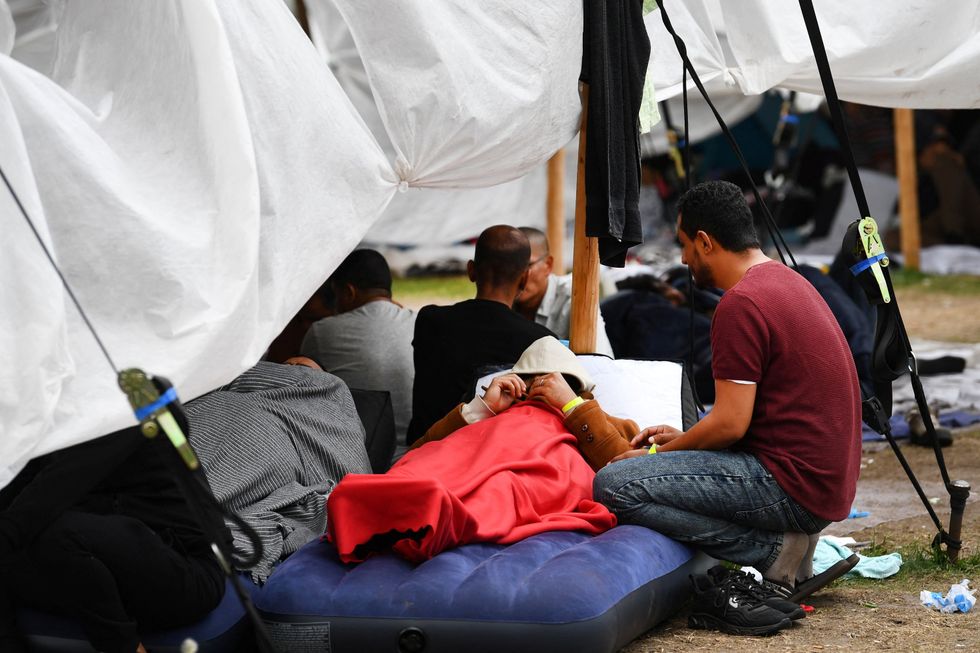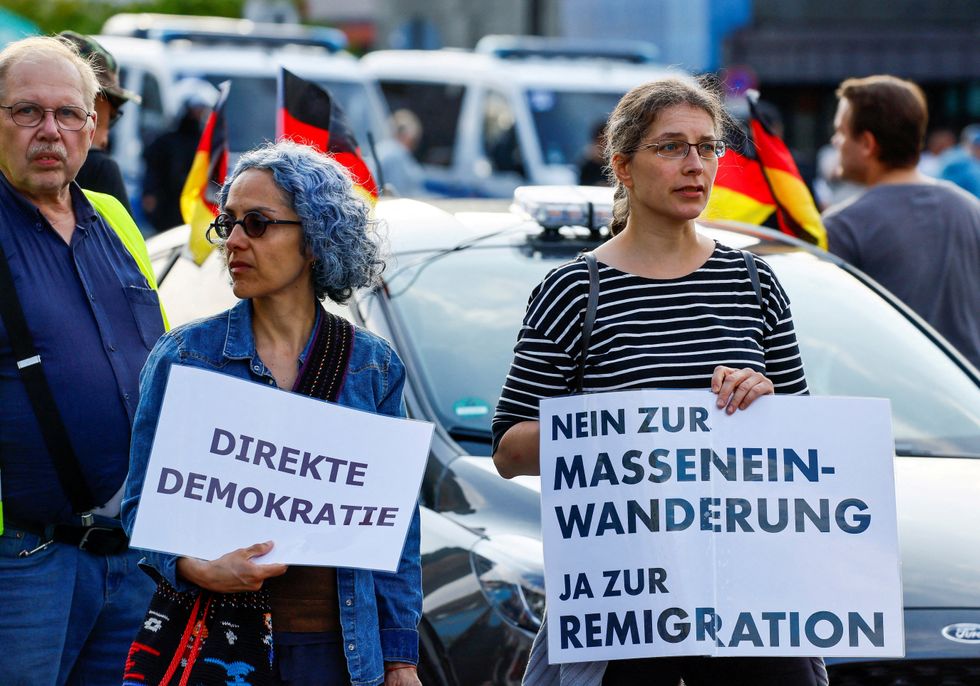The Netherlands has become the first EU country to demand an opt-out from migration rules, citing concerns over its ability to provide essential services to citizens.
This unprecedented move comes as the Dutch government, which took office in November, plans to declare an “asylum crisis”.
The declaration would pave the way for tougher measures, including a freeze on asylum applications and powers to forcibly deport individuals without the right to remain in the country.
Under the proposed changes, the Netherlands aims to ensure it can adequately provide housing, healthcare, and education to its citizens amid growing migration pressures.
The Dutch government’s stance reflects a broader trend of EU nations grappling with migration challenges, as evidenced by similar concerns in Germany.
The proposed changes to family reunification policies for refugees are a key aspect of the Dutch government’s plan.
Under the new rules, refugees would face stricter requirements before being allowed to bring family members to the Netherlands.
“Under the proposal, refugees would only be able bring in family members if they have had residence status for two years, have housing and a ‘stable income’,” reports the Daily Mail.
This marks a significant shift from current policies. At present, asylum seekers in the Netherlands receive a permit to stay for an indefinite period after five years.
LATEST DEVELOPMENTS:
- ‘We can’t afford this!’ Anti-immigration protesters claim ‘Irish politicians have been hijacked by foreign forces’ as unrest continues
- Farage admits mass deportations aren’t his ‘ambition’ as he offers ‘dead simple’ solution
- Hundreds of migrants storm Spanish border in coordinated attempt to enter EU
 The Netherlands has become the first EU country to demand an opt-out from migration rules, citing concerns over its ability to provide essential services to citizensReuters
The Netherlands has become the first EU country to demand an opt-out from migration rules, citing concerns over its ability to provide essential services to citizensReuters
The Dutch government’s approach reflects growing concerns about the impact of migration on public services and social cohesion.
It also signals a potential shift in EU migration policies, with other member states likely to watch the Netherlands’ actions closely.
Germany has also taken steps to address migration concerns, implementing stricter border controls across its land borders.
Interior Minister Nancy Faeser informed the EU that Germany had “no choice but to enforce proper border controls to cope with unauthorised entries”.
This decision marks a reversal from her previous stance, when she had refused to extend controls on Germany’s borders with Poland, the Czech Republic, and Switzerland.
The new measures have already had a significant impact. Since mid-October last year, over 30,000 people have been turned back at German borders.
These actions come amid growing concerns about immigration in German politics, fuelled by recent Islamist attacks and rising support for the AfD party.
Germany’s migration concerns extend beyond border control measures. The country’s police union has voiced strong criticism of the Schengen agreement, the EU’s border-free scheme.
Manuel Ostermann, deputy federal chairman of the Federal Police Union, told Focus magazine: “The crisis in Germany’s security is a direct consequence of Schengen’s ineffective policies. Schengen’s inability to manage migration effectively has put Germany’s safety at stake.”

Interior Minister Nancy Faeser informed the EU that Germany had “no choice but to enforce proper border controls to cope with unauthorised entries”
PA
Ostermann called for immediate action, stating: “Germany must realise the current failure of Schengen and either make a concerted effort to return to the current legal situation or terminate Schengen.”
He pointed to rising crime rates as evidence of Schengen’s failure, arguing that open borders have made it easier for criminals to operate across Europe.
“Schengen has failed to protect Germany from the influx of criminals, necessitating immediate action,” Ostermann said.
The coming months will likely see continued discussions and potential policy shifts as EU nations seek to address migration challenges.